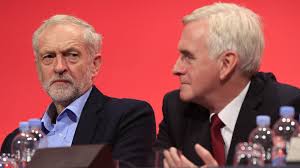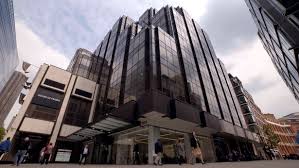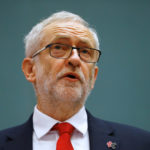AS Jeremy Corbyn pushed open the doors into the airy offices of the Leader of the Opposition, on Victoria Embankment, though he had suspicions he could not have comprehended what was being plotted against him 900 yards away at Southside, Labour’s headquarters, or as it was soon dubbed, Darkside.
As one of the first staff appointments in the office of the former Shadow Chancellor, John McDonnell, I worked on the same corridor as Corbyn’s team.
I was new to the Labour Party, with a background in climate activism, and mostly unaware of all its different political affiliations and factions. This was something I shared with many of my colleagues who also weren’t from the world of machine politics.
We were in for quite a shock when we were confronted with the Labour HQ machine.
When I’d started previous jobs I’d arrive to some kind of handover notes.

When Corbyn and McDonnell walked in on day one, the small team that had joined after working on his leadership campaign received a more unconventional greeting – many of the computers were missing and the offices weren’t properly set up.
“The few computers that were in the office were the oldest ones possible and they kept crashing”, a former senior adviser to Jeremy Corbyn told me.
“The situation was so dire that after a day on the road with Jeremy I came back to find a new colleague had taken my screen because he didn’t have one.”
The situation in John McDonnell’s offices was worse.
“When we took up the offices they were completely gutted. There were half pulled out staples in the walls and bits of blue tack.
“The desks had no chairs let alone computers and I had to work off my own mobile and laptop”, said James Mills, John McDonnell’s Head of Communications.
I don’t remember anyone ever getting to the bottom of where the computers had disappeared to, but responsibility for ensuring the offices were set up was Labour HQ’s. This was to be a first warning.
Some of the behaviour of senior officials at Labour HQ has already been documented in the 860-page leaked Labour report, but there’s a lot more that went on behind the scenes.
Another constant battle that took place was over the hiring of staff. Almost every appointment was either delayed, frustrated or blocked by Labour HQ, which controlled the party’s finances.
“A full year into Jeremy’s leadership, we still only had around 16 members of staff which was about half the number when Ed Miliband was leader”, the former senior Corbyn adviser tells me.
James Meadway, a former treasury economist and chief economist at the New Economics Foundation, had to be seconded from one of the trade unions to serve as Economic Advisor in McDonnell’s team after the party repeatedly refused to hire him.
Relationships were so strained that colleagues would regularly turn up to meetings with party staff, get back to their desks, and be horrified to learn that the contents of the meeting had already been leaked to journalists.
This became a major headache as it was almost impossible to plan effectively without the ability to share vital information between the leader’s office and party HQ. Senior aides close to Corbyn were regularly forced to withhold information on policy announcements until the very last minute for fear of leaks.
This fear had the effect of putting most people on edge and helped contribute to an office in a justified state of paranoia.
The most shocking sabotage I personally witnessed was an encounter with the notoriously difficult regional offices who were often the most ideologically opposed to the Corbyn regime.
At my request, attempts were made to organise a rally for John McDonnell via one of the regional offices. Given that John was one of the most senior members of the shadow cabinet, I expected my request to be met with enthusiasm.

When I found out that the location they had chosen was in the middle of nowhere I was left flabbergasted. I was told this tactic had been used before – apparently to avoid lots of members showing up and being won over by the new regime.
There were hundreds more incidents like this that I’m aware of; press releases regularly blocked from going out, staff briefing against Corbyn’s office, weekly planning grids leaked including the 2019 General Election grid, an almost constant refusal to share content on the party’s social media platforms and the co-ordination of staff resignations to damage the party.
As a political first, the party’s 2017 manifesto was also infamously leaked.
Perhaps the most kafkaesque example is the bizarre story of party officials designing Facebook adverts to be seen by only Corbyn’s team.
A party official helpfully explained the strategy to the Sunday Times: “They wanted us to spend a fortune on some schemes like the one they had to encourage voter registration, but we only had to spend about £5,000 to make sure Jeremy’s people, some journalists and bloggers saw it was there on Facebook. And if it was there for them, they thought it must be there for everyone. It wasn’t.”
On the night of the 2017 General Election I’ll never forget the deathly silence at HQ and the looks on the faces of those staffers we knew to have been plotting against Corbyn since day one.
While we celebrated robbing Theresa May of her majority, staffers mourned in the room next door: “they are cheering and we are silent and grey faced. Opposite to what I had been working towards for the last couple of years!!”, one senior staffer allegedly wrote on WhatsApp that night, according to the leaked report.
They were so confident Corbyn was going to do badly that just before the exit poll results came in, all of Corbyn’s staff had their electronic access to Labour HQ revoked.
All of the key staff implicated have moved on from working for the party. But the Forde Inquiry must heed the outcry and astonishment from many of the party’s half million members.
For the inquiry’s recommendations to be seen as credible, a lifetime ban for these former Labour staffers has to be the bare minimum.
Jeremy Corbyn may have been ideologically further away from his fellow Labour MPs than any former leader, but that doesn’t justify the relentless nature of the attacks.
What Corbyn and his team had to deal with behind the scenes went far beyond factionalism and showed a scorched-earth mentality. Not only did they not want Labour to win under Corbyn, they seemed to be actively trying to lose.
Once the dust settles on the Corbyn-era, historians may ponder how different things might have been if these Labour staffers, and numerous Labour MPs, had spent their energies supporting their leader rather than working against him.
The number of extra votes in marginal seats that Labour needed in 2017 to give Corbyn a chance of being prime minister was an agonising 2,227. This will forever remain a sore point for many of us. As the leaked report exposed – we know that in 2017 party resources never reached many of the winnable seats that they should have, with allies of the small faction in party HQ standing in safe seats seen as the first priority.
We were a young and diverse team, mostly new to electoral politics and passionate about our jobs, and we came incredibly close to changing this country’s politics for good.
Without the actions of this small group of highly experienced saboteurs, I genuinely believe we would now be three years into a Labour government investing in our NHS and public services – an outcome which surely would have better prepared the country for the Coronavirus pandemic.
Taken from Joe Ryle’s evidence to the internal Labour inquiry which is examining the past behaviour of former senior party staff.
Subscribe
Click here for a secure way to sign up, you will be supporting independent news. Click the button below.
Your Opinions
Disagree with this article? why not write in and you can have your say? email us




